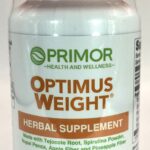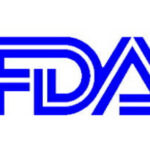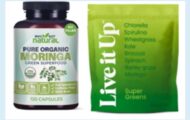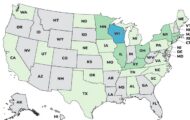Get Thanksgiving turkey safety tips from the USDA, including how to thaw and cook the bird, for a safe holiday. The biggest meal of the year comes with special food safety issues, especially regarding the turkey. The first step is thawing the turkey, if you purchased a frozen bird. Never ever thaw turkey or any meats at room temperature. Turkey can be thawed in the fridge; allow 24 hours for every four pounds of turkey. That means if you bought a 16 pound turkey, you need to allow four full days for thawing. After the turkey is thawed using this method, it can be kept, uncooked, in the fridge for two days. You can also thaw the turkey in cold water. Allow 30 minutes of thawing per pound, and submerge the turkey in its original wrapping. Change the water eery 30 minutes until the … [Read more...]
FDA Issues Final Compliance for Preventing Scombrotoxin in Fish
The FDA has issued a final compliance policy guide (CPG) for preventing Scombrotoxin in fish. The adulteration of fish and fishery products with histamines can cause Scombrotoxin poisoning in humans. Histamine production can occur in fish as the flesh begins to decompose after death. The CPG will help the FDA address adulteration during surveillance sampling and testing and will increase consumer protection by lowering the levels of histamine in fish. In some species of fish, such as tuna and mahi-mahi, the muscle tissue can cause histamines to form because of the activity of enzymes produced by spoilage bacteria. Unless fish are quickly and properly chilled after the catch, histamines can accumulate. Once they are formed, these histamines cannot be removed by washing, freezing, … [Read more...]
Halloween Food Safety Tips From the FDA
It's almost Halloween! Get these Halloween food safety tips from the FDA to keep your kids safe. Once the costumes are ready there are some things for you to think about. First of all, make sure your kids eat a healthy snack or meal before they head out trick or treating. Tell them they should not eat any of the candy or treats they receive until they get home and you can look them over. Children should be told not to accept or eat any homemade treats. Only accept commercially wrapped, inspected treats. And when they get home, look over the candy carefully for any signs of tampering, including unusual appearance, discoloration, pinholes, tears, or rips in the wrappers. Throw away anything that looks suspicious. If your child has a food allergy, check the label to make sure the … [Read more...]
Flood Waters Contain Chemicals, Pollutants, Bacteria, and Viruses
With Hurricane Milton poised to hit Florida tomorrow, and people still cleaning up from Helene, there are some things you need to know about flood water. Drowning and building damage are not the only risks from floods. And this water is not just dirty. Flood waters contain chemicals, pollutants, bacteria, toxins, and viruses that can make you sick. And eating food or drinking water contaminated with these waters can be very dangerous. Even containers that you think are sealed are not impervious to flood water. Charlotte County issued a bulletin about these dangers. First, if you are under a boil water notice, use commercially boiled water for mixing baby food formula. Wash your hands with soap and either disinfected or boiled and cooled water, especially before preparing or … [Read more...]
FDA Finds More Supplements That Contain Yellow Oleander
The FDA has found more supplements that contain yellow oleander, a toxic plant that can cause serious illness and death. Yellow oleander can cause neurologic, gastrointestinal, and cardiovascular adverse health effects that can be severe or fatal. These three new products should not be consumed. If you have purchased them, take them back to the place of purchase or discard them according to your community's methods of getting rid of toxic substances. You can see pictures of these items at the FDA web site. The products include Creative Interiors, LLC/Privit Wellness, LLC Primor Health Optimus Weight. It was sold through Amazon. The firm has not yet committed to a recall. The second product is Innovacion Natural LLC SdB Elite Salud de Belleza that was also sold on Amazon. The FDA … [Read more...]
FDA Has Started a Streamlined Food Complaints Program
Have you ever wanted to tell the FDA about a problem with food? The FDA has started a streamlined food complaints program to make the process easier. The complaints can be about an illness, an injury, an allergic reaction, concerns about a dietary supplement, or any concern about defects in the safety or quality of an FDA-regulated food. This is part of the Human Foods Program. Until this new program was initiated, consumer complaints were directed to Consumer Complaint Coordinators in the FDA's Office of Regulatory Affairs. The phone numbers associated with those coordinators will no longer be active. Instead, consumers can call 1-888-SAFEFOOD (1-800-723-3663). Then, officials with the Human Foods Program will receive, triage, and evaluate complaints, and the new Office of … [Read more...]
Worried About Lead in Cinnamon? Consumer Reports Can Help
Are you worried about lead in cinnamon? Consumer Reports can help with information on the brands that are the most and least contaminated with this heavy metal. The issue came to the forefront last fall when hundreds of children were sickened with lead poisoning after eating recalled WanaBana apple cinnamon pouches. Since then, the FDA has increased testing of cinnamon for lead contamination, and many recalls have been issued for unsafe products. The FDA warned consumers to avoid 17 products since their lead content, while still lower than that found in the apple puree pouches, were high enough to risk human health when consumed often. So which products are safer than others? Dr. James Rogers, the director of food safety research and testing at Consumer Reports, said in a … [Read more...]
Food Safety Emergency Preparedness Before a Storm
Get food safety emergency preparedness tips before a storm from the USDA. September is National Food Safety Education Month and emergency Preparedness Month. And with Hurricane Helene bearing down on the southeastern United States, it's time to get ready. For a chart about how to prepare, see Food Safety Before An Emergency. Knowing how to keep your food and water safe will minimize danger from spoiled food and reduce the risk of foodborne illness. It's a good idea to always be ready, but when a storm watch or warning is issued, start to prepare. First, fill empty spaces in your freezer with frozen plastic jugs of water or bags of ice. They can serve as fresh water as needed. And freeze items you don't need right away. Fill jugs with fresh water and fill your bathtub as well. … [Read more...]
FDA Says Skip Antibacterial Soap in Favor of Plain Soap
The FDA is advising consumers to skip antibacterial soap in favor of plain soap and water because those soaps are not better at preventing illnesses and could cause more harm than good. Many people believe the antibacterial soaps will do a better job at keeping their family safe and healthy. Antibacterial soaps will generally have the word "antibacterial" on the label. But the FDA states that there is no evidence that shows that over the counter antibacterial soaps are better at preventing illness than plain soap and water. Dr. Theresa M. Michele of the FDA said in a statement, "Following simple handwashing practices is one of the most effective ways to prevent the spread of many types of infection and illness at home, at school and elsewhere. We can’t advise this enough. It’s … [Read more...]














